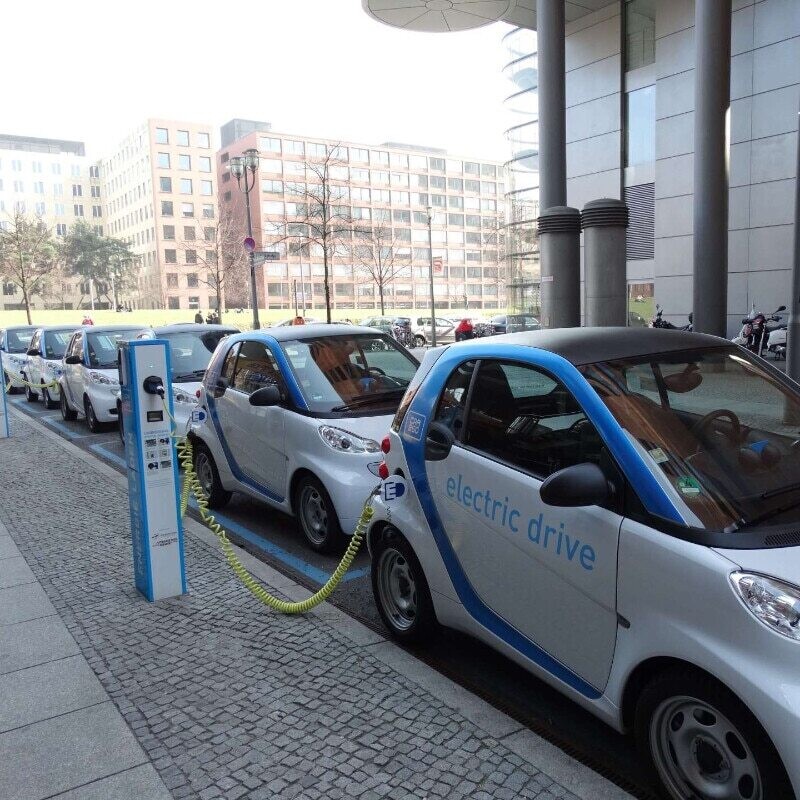
Financing India’s Electric Two- and Three-Wheeler Fleets
India has the world’s largest fleet of two- and three-wheelers – its transition to electric requires financing of $285 billion. In this executive brief, the Moving India initiative, ident...
The mission
India has committed to a national net-zero target by 2070 at COP26. The road transport and automobile sectors in India can reach net-zero ahead of 2050 through targeted public-private partnerships. Our Moving India Network aims to do just that.
The opportunity
India is the world’s largest two- and three-wheeler market, second-largest bus market, third-largest freight truck market and the fourth-largest car market. The number of automobiles sold in India is expected to double by 2030, presenting an opportunity for significant carbon mitigation. According to Mission 2070: A Green New Deal for a Net-Zero India, the country's transition to net-zero could create over 50 million jobs and contribute around $15 trillion by 2070 in economic impact.
As per the International Energy Agency, the transport sector is already the fastest growing energy end-use sector in India – making India’s transition to sustainable transport globally critical. Electrification of passenger and goods mobility can help India reduce its oil import dependence, reduce emissions, and provide cleaner air for its citizens.
Furthermore, India’s ongoing focus on early electrification of its two- and three-wheeler and bus fleets, supported by the massive scale available domestically, positions the country well to serve as a global “lighthouse” for other emerging markets.
BackgroundThe Moving India Network of government, business leaders and third sector actors work together to accelerate the transition to shared, connected and electric mobility solutions in India. In 2022, over 30 businesses came together to create this national network for action and identified three key areas of action: strengthening electric vehicle supply policies, igniting India’s transition to zero emission road freight and financing the transition to electric 2/3Ws fleets.
Approach
India aims to become a global leader in electric vehicle (EV) adoption and manufacturing. By initiating the Moving India Network, the World Economic Forum incubates a public-private platform for advancing this ambition.
The Moving India Network of government, business leaders and third sector actors will work together to accelerate the transition to shared, connected and electric mobility solutions in India through four core work areas:
1) Strengthening state-level electric vehicle supply policies – To meet India’s growing demand for electric vehicles, a taskforce is support policy action to help establish a resilient, sustainable manufacturing and operational capacity. Moving India will work with 2-3 key Indian states and leverage the national battery and automotive Production Linked Incentives (PLI) schemes to provide a framework for states to attract investments for scale up of India’s EV supply ecosystem. The first such collaboration was with the Government of Andhra Pradesh, where a CEO-ministerial dialogue was hosted by the Minister for Industries, Infrastructure, Investment & Commerce, and Information Technology.
2) Igniting India’s transition to zero emission medium- and heavy-duty road freight – Medium- and heavy-duty trucks account for approx. 30% of India’s transport emissions. To support early freight electrification efforts in India, a taskforce comprising global and Indian experts and leading businesses has initiated a conversation on road freight electrification in near-viable use cases and hopes to prepare a roadmap for large-scale national adoption. This task force is collaborating closely with NITI Aayog, the apex public policy think-tank of the Government of India.
3) Financing the transition to electric 2/3Ws – Over 200 million 2W/3Ws are expected to be sold in India in this decade. Financing is critical to achieve EV sales at any significant penetration. The task force is identifying scalable market models and opportunities to achieve the required exponential growth in customer and fleet financing of electric 2/3Ws in India and published an executive brief to capture how India can finance its 2/3W transition to electric at COP 27 in Sharm El Sheikh, Egypt in collaboration with NITI Aayog.
In 2023, apart from continuing to build momentum through the above task forces, we hope to create a new task force to address the challenge of battery circularity.
4) Circular battery and establishing India as a global battery recycling hub - This task force will focus on steps required to make India a global hub for battery-recycling and use that to source critical raw materials. Three key but somewhat unrelated challenges for India’s energy transition in mobility are: How can battery electric vehicles ensure safety? What happens to battery waste? How will India source critical raw materials for its energy transition in mobility? All three of these challenges require a common dialogue and solution. Our new task force will provide space for discussion on battery standards, circularity in design and critical raw material sourcing by making India a hub for battery recycling.
Further, Moving India's work in 2023 will align with India’s priorities as host of G20/B20. It will champion agenda topics such as resilient, trusted, and diverse supply chains for the energy transition in mobility, will work with select state governments on creating a model policy framework to enhance investments in electric vehicle supply, and will support circularity in the new electric vehicle supply chains, and lastly - ignite the discussion on transition to zero emission medium- and heavy-duty trucks.
